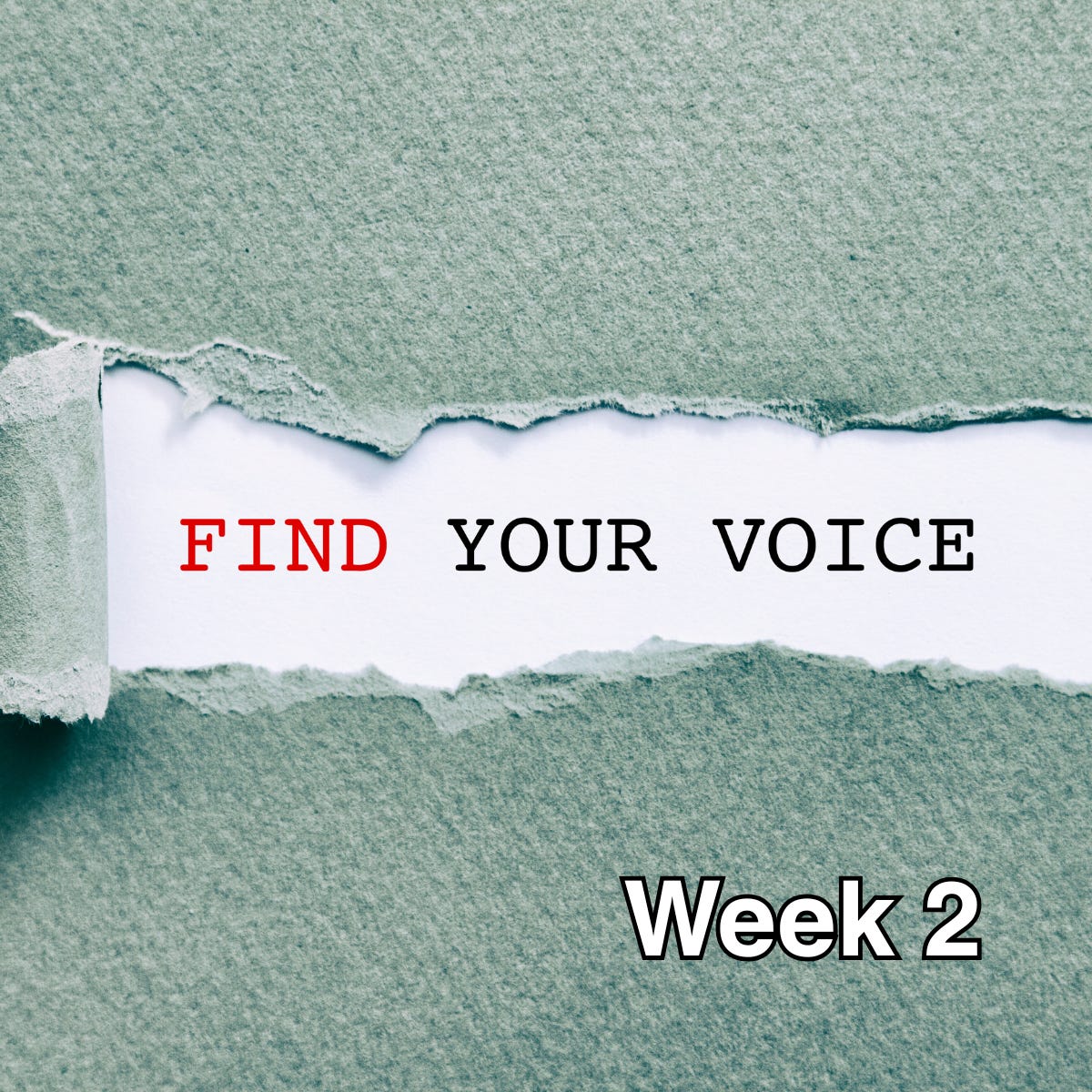🔍Speak Their Language. Build Real Connection + 4 New TEDx Applications
Week 2 of 8. Mirror your audience without losing your voice.
What’s Up?
Last week you found your brand’s voice.
Now it’s time to make sure people actually hear it.
Because real connection only happens when your audience feels seen.
Especially on social media, where attention is short and authenticity is rare.
This week is about mirroring your audience’s language.
Not copying. Not faking. Just speaking in a way that makes people say,
"They get me."
Why this matters for human connection:
Think about your close relationships.
You share certain words, inside jokes, and ways of speaking.
That shared language builds trust.
Your brand should do the same.
• Speak in a way that feels familiar
• Reflect values that your audience already holds
• Show them that you are listening, not just talking
Here are the three layers of audience understanding:
1. Demographic Language Patterns
• Age, career, and location all shape vocabulary
• A nonprofit leader in Atlanta may speak very differently than a tech founder in San Francisco
• Your job is to notice the patterns
2. Psychographic Preferences
• People focused on values want messages that reflect their beliefs
• Practical thinkers want clear, direct language
• Dreamers love inspiring, future-focused messages
• Community builders want inclusive, team-oriented language
3. Behavioral Triggers
• What language do they use when describing their problems?
• What shows up again and again in reviews, comments, and questions?
• What emotions come through in how they speak online?
Look at how real brands are doing this well:
• Glossier speaks to real beauty lovers with language like “skin first, makeup second”
• Mailchimp connects with creatives using phrases like “high five” and “do your thing”
• Patagonia reflects values clearly with terms like “worn wear” and “environmental impact”
They do not talk at people.
They speak with them.
How to gather your audience’s language:
Check your social comments, reviews, emails, and DMs
Look for repeated phrases, slang, or emotional words
Join the places they hang out — groups, forums, threads
Ask open-ended questions in surveys and let them speak freely
Take note of what words make them lean in
Build your Mirroring Matrix:
Create four sections:
• Pain points — exact words they use for what’s not working
• Aspirations — how they describe what they want
• Values — words that reflect what matters to them
• Objections — how they express hesitation or fear
Your action step this week:
Build a quick audience language doc:
Choose two or three platforms your people use often
Collect 10 to 15 quotes using their exact words
Highlight anything you see more than once
Circle emotional language
Create a short list of words and phrases that feel like them
Then try weaving a few of these into your next post or email.
Still sound like you. Just tuned into them.
Next week, we will talk about tone.
Because even when your voice is clear, your delivery needs to flex.
You will learn how to adjust tone without losing your brand’s core.
Keep going. This is how connection begins.
—Robin
P.S. I have a great resource for you. It’s a ready to use 21 page AI prompt pack. It has everything you need to fine tune your authentic voice in a matter of minutes.
I’m giving away the prompt pack and EVERYTHING else in my personal resource library to our Paid Members so sign up today!
SAMPLE PROMPTS:
Discovering Your Authentic Voice
1. Voice Attribute Analysis
Act as a brand voice strategist. Analyze the following content from my business (website copy, social media posts, customer emails, etc.) and identify 3-5 distinct voice attributes that appear to be emerging naturally. For each attribute, provide a brief definition and examples from my content that demonstrate this quality. Here's my content: [INSERT CONTENT]
2. Mission-to-Voice Translation
As a brand voice expert, help me translate my mission statement into concrete voice attributes. Analyze this mission statement: [INSERT MISSION STATEMENT] and suggest 3-4 voice attributes that would authentically express this mission in our communications. For each attribute, provide a definition and example phrases that demonstrate how it might sound in action.
3. Values-Based Voice Development
Act as a brand strategist specializing in voice development. Based on these core values of my business [INSERT YOUR CORE VALUES], recommend…
Keep reading with a 7-day free trial
Subscribe to Land the Talk: Social Media Flow for Nonprofits & Speakers to keep reading this post and get 7 days of free access to the full post archives.




